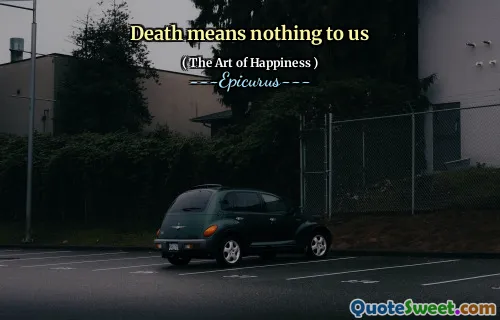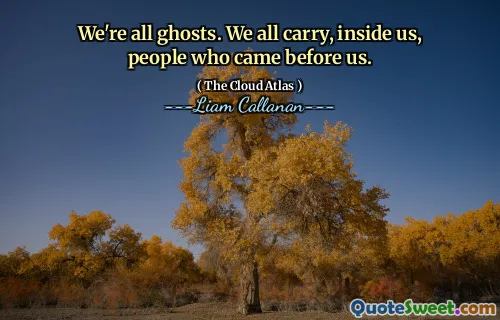
Death means nothing to us
📖 Epicurus
The statement "Death means nothing to us" attributed to Epicurus invites profound contemplation on the human condition and our relationship with mortality. It implies a perspective that death, in itself, is devoid of significance or impact on the individual who has died because, when death occurs, there is no longer a subject to experience or be troubled by it. This view challenges common perceptions that see death as something fearful or negatively charged. Instead, it encourages us to reconsider our anxieties about the inevitable end of life. From this vantage point, fear of death is irrational since, at the time of death, our consciousness ceases to exist; consequently, death cannot bring suffering or harm to us personally. This philosophy aligns with Epicurus' broader teachings on seeking happiness through the absence of pain and mental disturbance. Understanding that death "means nothing to us" could inspire a greater appreciation of life itself, urging us to focus on present pleasures and tranquility without being overburdened by existential dread. It encourages embracing life fully and cultivating a mindset that detaches from the paralyzing fear of dying. Moreover, this perspective can foster inner peace by shifting our view away from death as a final catastrophe towards seeing it as a natural, neutral event beyond our concern. Ultimately, by realizing that death holds no power over our experience, we might live more freely and joyously, underscoring the philosophical essence of Epicurus’ teachings in The Art of Happiness.






